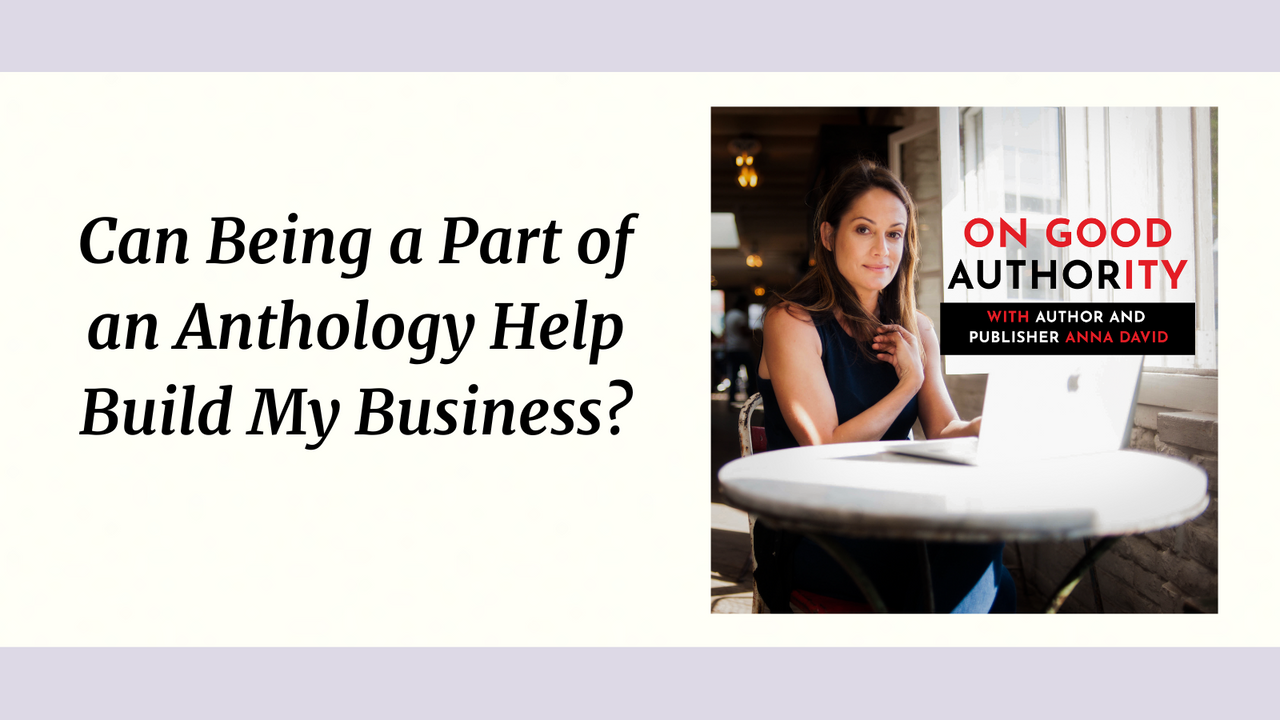
Can Being a Part of an Anthology Help Build My Business?
My First Time
The first anthology I was a part of was called Girls Who Like Boys Who Like Boys and it helped my career more than I could have even imagined. I had never been in a book before and a friend of mine was editing it. She asked if I had any stories about loving gay men. Turned out I had a doozy—the time I “converted” a gay guy straight. This was back in the glory days when publishers paid real money so I remember that I was paid $750 to do an essay it took me about a half hour to write.
But that wasn’t the best part. The best part is that the literary agency I’d just signed with submitted said essay to the New York Times “Modern Love” column and they accepted it. I had no idea what a big deal this was but it’s sort of a lottery ticket kind of thing.
The publishers arranged for a book tour and I was a part of the one that went to Marin County, San Francisco and Sonoma. AND the book was optioned and MADE into a reality show!
So you might say that I think being a part of an anthology is a must.
But I really don’t know.
Then I Realized, Um, No
The third book I sold to HarperCollins was an anthology of essays about reality TV. My thinking was, unsophisticated people watch reality TV and sophisticated people are writers. (As someone who’s both, I had a great understanding, I thought, of both groups.) I believed if I did a book that was for both the sophisticated and unsophisticated, I would capture, well, the whole world.
So I gathered an amazing array of writers—among them James Frey, Neil Strauss and Jerry Stahl. I threw a party to end all parties—complete with a red carpet, all the press in the world and appearances by reality stars.
And all of nothing happened. Turns out reality TV fans don’t want to read books about reality TV so much as watch reality TV and readers don’t want to read books about reality TV. The book got reviewed widely, including by The New Yorker, and it even still pops up as a “best of” reality TV books. But, in the end, it was not what one could call a rewarding endeavor.
Not one to learn a lesson easily, I sold another anthology—this one based on a storytelling show I hosted at the time—a few years later. It was called True Tales of Lust and Love and it featured essays by everyone from Meghan Daum to GLOW staff writer Rachel Shukert. I hosted readings all over LA, did a lot of media and, well…nada.
But really it was my error for not having thought it through beforehand: I didn’t want to have a career based on talking about reality shows, lust or love and so those books COULDN’T have served a purpose in my career.
It was a time-consuming lesson to learn.
Then I Did an Anthology with a Purpose
In 2020, I got an idea: to put together an anthology of addiction essays that could help those with experiences with addiction establish their credibility. I published it through Launch Pad, which means that we charged people to be a part of it, and this one was quite rewarding.
One of the participants started getting new clients for her coaching business before the book came out, simply because she was a part of the book, while others found themselves starting social media accounts that helped establish themselves in the recovery field. Others have had their careers really take off as a result of being in the book.
The Kevin Harrington Model
I really got the idea from my friend, Kevin Harrington, the original “shark” on Shark Tank, who established an anthology model where they charge contributors and his partner’s team writes the essays; they guarantee it will be a bestseller.
He’s doing another one, called MindStirring Business Secrets, and in the promotion it breaks down why it’s valuable for business: how each person’s chapter can include a CTA and how native ads for business perform better than Google, Facebook and Instagram ads.
The contributors’ names all go on the cover. So while you could say it’s wrong of him (and me) to charge people to contribute, that’s missing the bigger picture—that it’s a much easier (and less expensive) way than launching an entire book for people to establish expertise.
But What About the Writing Experience?
You may notice that I’m talking here about everything but the writing. So here’s what I’ll say about that: I’ve contributed essays to other anthologies over the years, and I’ve found the writing to be rewarding. It’s basically the equivalent of the sort of piece most of us write and post online, not only for free but with very few eyeballs taking them in, and there’s something pretty cool about them being in a book along with some very well-known writers.
And I watched the members of my writing community, the Inner Circle, put together an anthology called The Epiphanies Project (I wrote the foreword).
Here’s what one of the editors, Beth Robinson, had to say: “Getting to know the writers on such a deep level and the pleasure of collaborating, both with Chris as co-curator and with each of the writers individually—it was such a strong sense of doing something really worthwhile on so many levels with a great group of people and building a connection that we'll all have forever.”
Strength in Numbers
When it came to The Epiphanies Project, they were really able to use the fact that there were so many contributors to do a massive launch; each of the writers agreed to recruit at least 10 readers and so they were able to launch to the number one spot in numerous categories and have an array of people posting about it. One of the contributors, Susan Zinn, even got the book mentioned on the Today show blog.
If you’re thinking you want to put together an anthology, here's advice Beth had:
- Start with a budget and a timeline; build in time to chase down drafts
- Make sure you see a hard copy before actually launching
- Work with good editors; have a developmental editor, copy editor and a proof reader.
My advice, of course, is to figure out your goal: unless you just want to consider it service you do for the world, determine how it can help your contributors (and your) business. Know that (as of now), only 10 authors can be listed as authors on Amazon and giving someone an opportunity to have an author profile on Amazon is uber powerful. Plus, for a first-time author, having your name on the cover is undeniably cool.
Also be very intentional. Don’t let ANYONE contribute or the book will lack quality control and be very uneven. Have a screening process and talk to each contributor ahead of time about what they want the book to do for their career. Hire an amazing editor who can tell you—and them—honestly if what they’ve written won’t help them meet their goals.
And know, as while Beth’s co-editor Chris Joseph told me, corralling all the writers to something akin to “herding cats.”
RELATED EPISODES
How Do I Avoid Hiring the Wrong Editor for My Book?
How Do I Make Money From My Book (Aside From Through Book Sales)?
How Do I Get Clients From My Book?
Chris Joseph on Publishing a Book About His Recovery From Cancer







